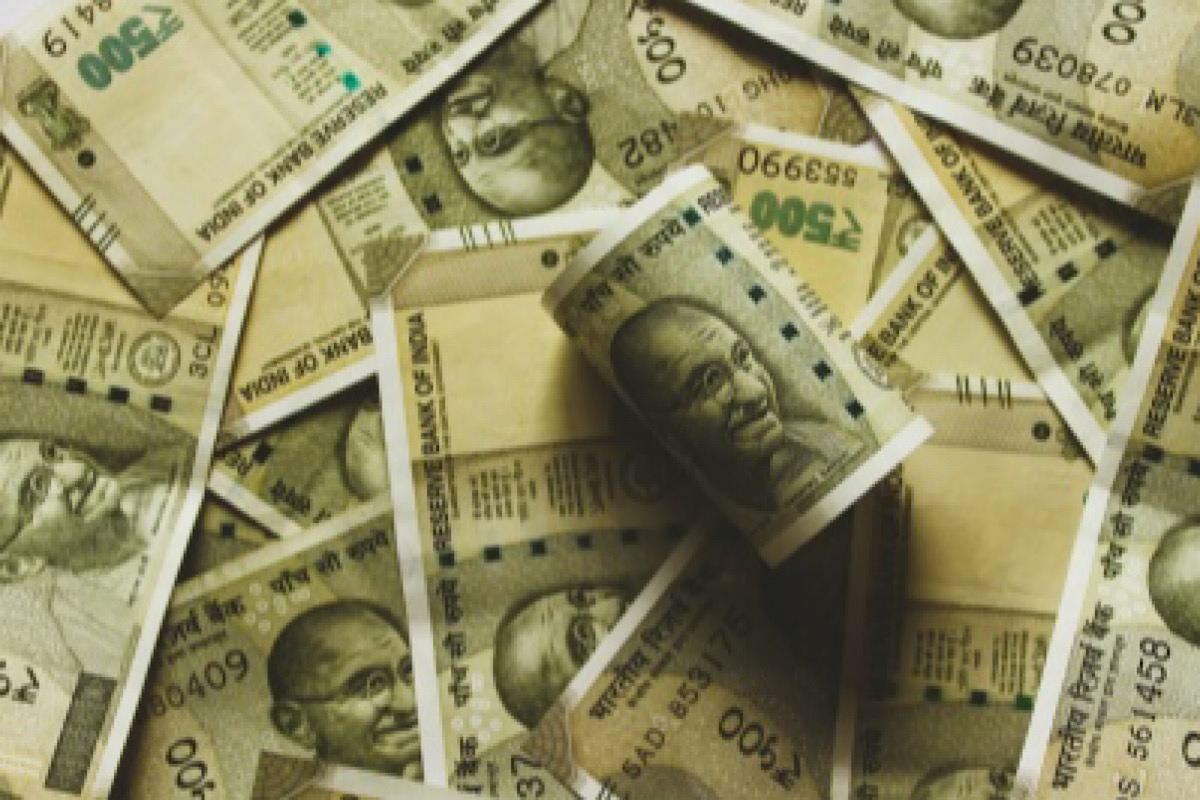India’s foreign exchange reserves rise to USD 665.396 billion: RBI
In the previous reporting week, the overall reserves rose by USD 4.529 billion to USD 658.8 billion, the RBI said.
The Indian rupee’s recent struggles underscore the intricate dynamics of global and domestic factors influencing its value.
SNS | New Delhi | January 23, 2025 9:03 am

Rupee representation image (Photo:IANS)
The Indian rupee’s recent struggles underscore the intricate dynamics of global and domestic factors influencing its value. Amid surging crude oil prices, inflationary concerns, and fluctuating global currencies, strategic policymaking is essential. The Reserve Bank of India (RBI), under the leadership of its new Governor, San jay Mal hotra, seems poised to adopt a more flexible approach to exchange rate management ~ an essential pivot in this uncertain economic climate. Global developments have significantly impacted the rupee. Robust economic data from the United States, including stronger-than-expected job growth, has bolstered the dollar’s strength.
This, coupled with the Federal Reserve’s cautious stance on rate cuts, has widened the dollar index, exerting pressure on emerging market currencies like the rupee. Additionally, new US sanctions on Russian oil exports have driven crude prices above $80 per barrel, exacerbating India’s import costs and widening its current account deficit. Regional influences further complicate the picture. The People’s Bank of China’s decision to weaken the yuan has had ripple effects across Asian currencies, while Japan’s potential interest rate hikes could redirect global investments to Japanese assets. These moves amplify market volatility, exposing the rupee to additional depreciation risks. Domestically, the challenges are no less pressing. Lowerthan-expected GDP growth projections and continued selloffs by Foreign Portfolio Investors (FPIs) have undermined confidence in Indian markets. Rising crude oil prices are fuelling inflation, creating a complex environment for policymakers to navigate.
Advertisement
In this context, Mr Mal hotra’s inclination toward greater rupee flexibility appears both timely and necessary. For years, the RBI has tightly managed the rupee, contributing to its overvaluation as highlighted by the Real Effective Exchange Rate (REER). Allowing the rupee to depreciate in a controlled manner can help correct this overvaluation, enhance export competitiveness, and support India’s external balance. At the same time, strategic interventions to curb excessive volatility will ensure market stability and investor confidence. It is critical, however, for policymakers to view this flexibility as part of a broader economic strategy. Enhancing productivity in key export sectors, diversifying the energy import portfolio, and implementing measures to reduce dependence on global cru – de markets are vital. A stronger domestic economic framework will not only bolster the rupee but also insulate the Indian economy from future external shocks, ensuring a more robust recovery trajectory. Exchange rate flexibility alone is not a panacea. Structural measures to bolster domestic growth and improve export competitiveness are crucial.
Advertisement
Diversifying energy imports to reduce reliance on volatile global markets is equally important. Additionally, addressing banking sector liquidity constraints can create a more conducive environment for economic recovery. The road ahead is undoubtedly challenging, but it also offers an opportunity to recalibrate economic fundamentals. While the rupee’s depreciation poses short-term challenges, it can serve as a catalyst for long-term resilience. Mr Malhotra’s approach signals a pragmatic shift towards adaptability, acknowledging that there is only so much the central bank can do through interventions, when the need is to address fundamentals. India’s ability to navigate these challenges will depend on its readiness to embrace strategic flexibility while addressing its structural vulnerabilities.
Advertisement
In the previous reporting week, the overall reserves rose by USD 4.529 billion to USD 658.8 billion, the RBI said.
India's foreign exchange reserves witnessed a spike to USD 665.396 billion during the week ended March 28, the RBI said on Friday. The forex reserve increased for the fourth consecutive week, marking the highest level in nearly five months.
The government appointed Dr Poonam Gupta as the Deputy Governor of the Reserve Bank of India (RBI) on April 1, 2025. She will hold the position for three years, the appointments committee order stated.
Advertisement
